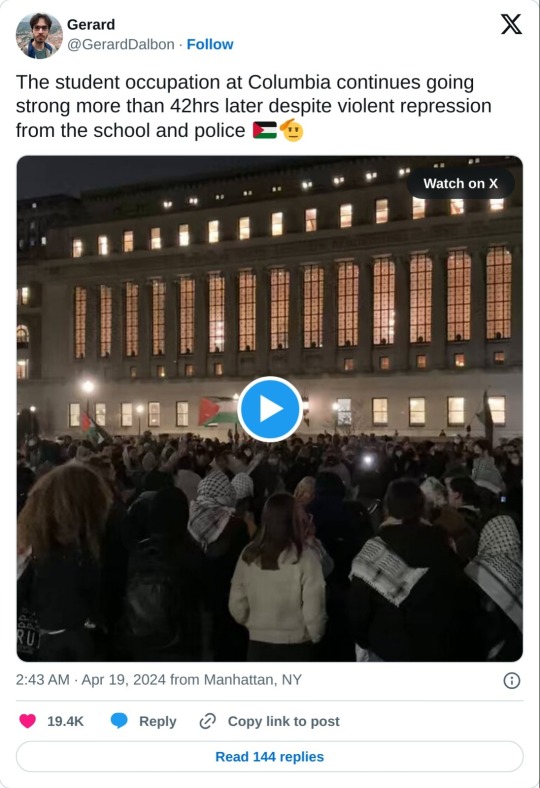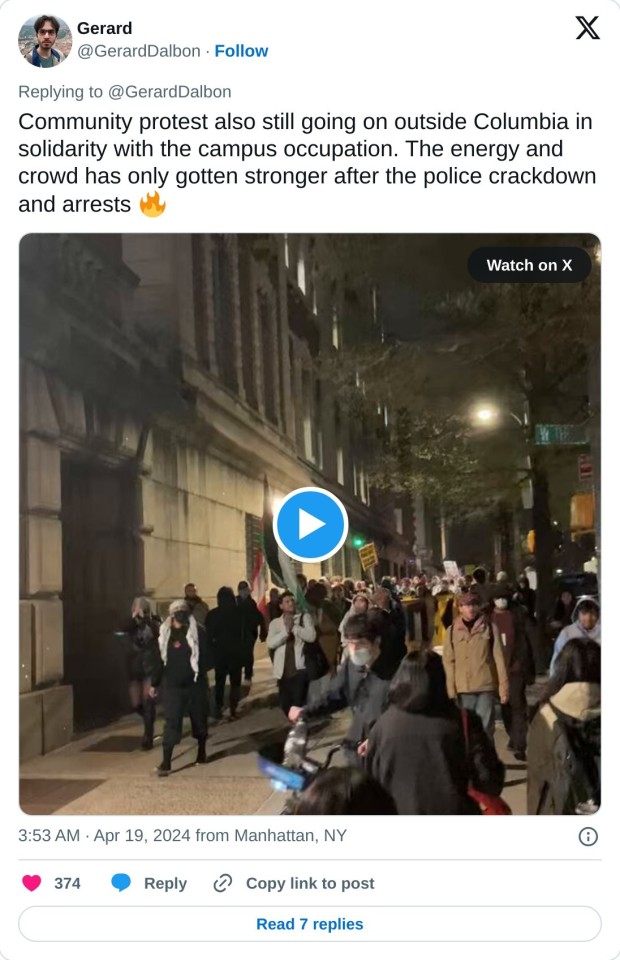Text
Just a reminder for people who may not know, in light of protestors at UCLA being shot in the face with rubber bullets— rubber bullets are not bullets made of rubber. They are metal bullets encased in rubber.
Despite being called “non-lethal” or sometimes “less lethal”, they are well known to cause death and permanent disability.
Here’s a photo showing their size— these are actual rubber bullets used during the Black Lives Matter protests in 2020.
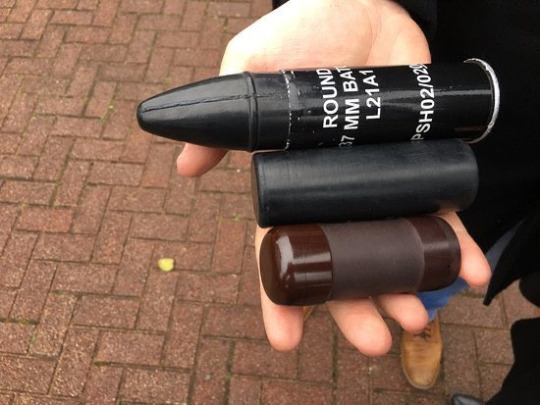
Do not let them downplay the severity of what they are subjecting this students to for standing against genocide. Stay safe and stay educated.
EDIT: Twitter banned @/nosferatusexgod, the student shot, whose tweet I linked to (as a primary source) at the top of the post. Screenshots of the tweet I originally linked to can be found here.
56K notes
·
View notes
Text


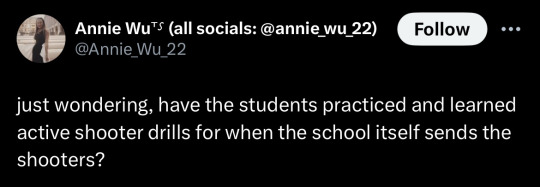

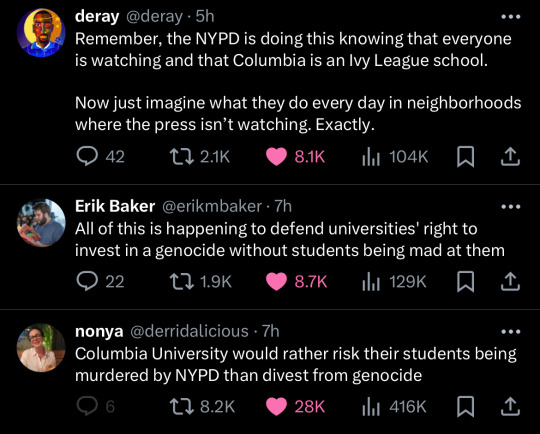

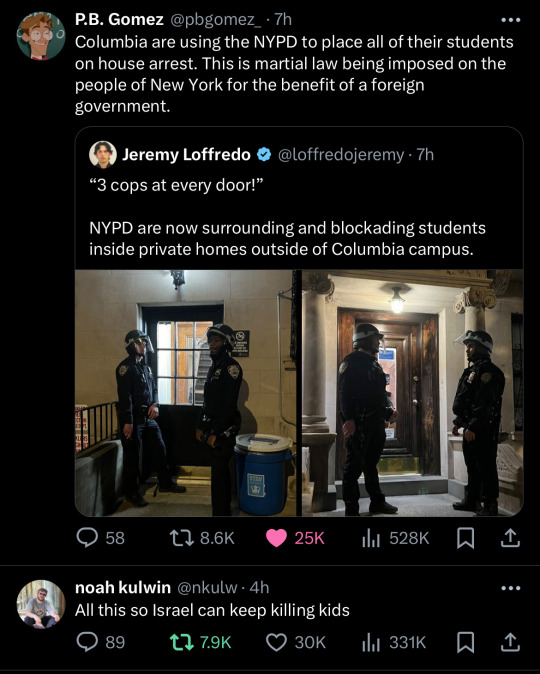

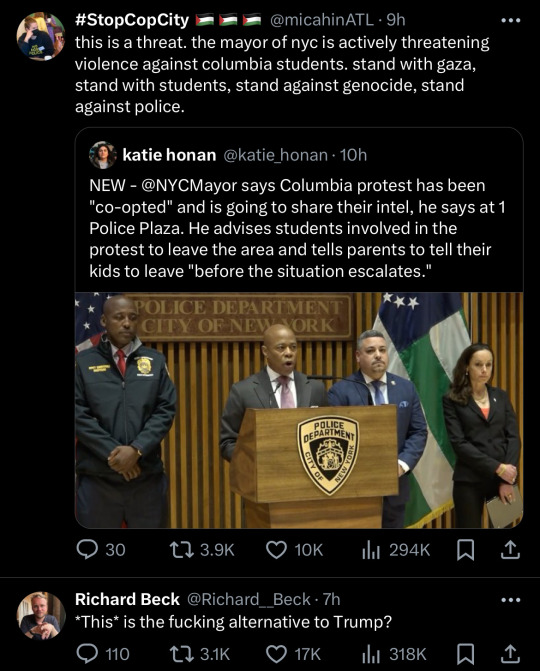
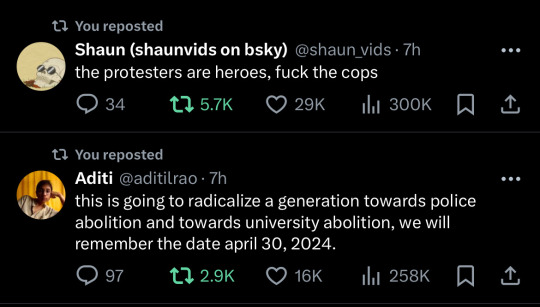
i can’t find words for my anger right now so here’s a collection of thoughts that share the sentiment
49K notes
·
View notes
Text
Kia ora!
I'm Māori and an amateur writer!
Firstly, I'd like to acknowledge and welcome your interest in my culture. Given the political discourse currently happening in Aotearoa, it's honestly so refreshing. Thank you so much. Truly.
In saying that, I'll be honest here: creating a character from a race outside your own will always be challenging—especially if you haven't had much firsthand experience with said culture.
So, to start with, Māori aren't a monolith. We don't all have Māori names, and not all of us are deeply connected to our culture. You could name your character William and say he was Māori, and that'd be just as plausible as naming him Wiremu.
We have different iwi (tribes), hapu (sub-tribes), and in some places, even different dialects. Our traditions and customs can and will vary from place to place, too. For example, in my family, at a large gathering, we ensure children and teenagers are fed first—but in my sister-in-law's family, elders are fed first. I know this example might seem insignificant to non-Māori, but it shows a stark difference in the values of our two iwi: Whakatōhea & Ngāti Kahungunu.
You must also consider how colonisation has affected this character, too. Many Māori are unable to speak Te Reo Māori today because of historical grievances. My grandparents, for example, were repeatedly beaten at school for speaking Te Reo Māori, and as such, were indoctrinated into believing that there was something wrong with our language. Something lesser. As a result, I'm unable to speak the language fluently (but I take Te Reo classes now, as an adult).
So, what I think you, as a writer, could do to better represent a Māori character in your work is go a few steps back first, and ask yourself some of these questions:
Does my character know what iwi they come from?
If so, what iwi?
What customs, values, and traditions does this iwi have? (E.g.: we don't sit on tables, benches, or anywhere food is prepared—research "tapu")
How does my character follow these customs, values, and traditions?
Can my character speak Te Reo Māori?
What kind of life did they have before moving out of Aotearoa? What's their relationship like with their whānau (family)?
I highly recommend doing some further research into Māori history too. Here is a solid starting point, but you could also try NZ History. Moreover, once you've selected an iwi for your character, it might be worth reaching out to the iwi via email to ask them questions! Most iwi have websites and ways to contact them, so it shouldn't be too hard to track down online.
Anyway, I know I didn't answer any of your questions directly, but I hoped this info-dump helped! Good luck!
I am not māori . I have been in love with the māori culture for years now (as well as its 'cousins', but for some reason this one stuck with me), hakas bring me to tears most of the time, and boy do I love listening to that language. I find that culture absolutely beautiful in every possible ways. I am actually currently trying to learn a few words on the Drops app.
Also, I am not a writer or anything, just like to write on my own free time, and I want my main character to be from that culture. I know a a thing or two about it, traditions, etc... from what I can find on māori websites, videos and content creators, but not much more really.
Here is how I see it: māori people use a lot of māori words in their daily life, although I don't know any that could be useful (how is "rā whakanui māmā" going to help), nature is very important in the culture (hence the gods representing different natural elements in the mythology), so I would include kinship with the land and the environment, i don't know a lot about traditions, but if there are any that are/can be done on a daily basis (even something small), I would also include it, as well as some traditional jewellery? (i am thinking of a hei tiki, or at least a pounamu jewellery) so thay can always have a piece of home with them (as the character would not be in Aotearoa). On top of giving the character a māori name and a moko along the way, those are the ideas I have, but I can't really put them into words, since I have no actual knowledge of any of it and even less knowledge about what it's like to be māori.
Please, someone, anyone, if you have any tips to accurately write a māori character, be my saviour.
10 notes
·
View notes
Text
at some point you have to realize that you actually have to read to understand the nuance of anything. we as a society are obsessed with summarization, likely as a result of the speed demanded by capital. from headlines to social media (twitter being especially egregious with the character limit), people take in fragments of knowledge and run with them, twisting their meaning into a kaleidoscope that dilutes the message into nothing. yes, brevity is good, but sometimes the message, even when communicated with utmost brevity, requires a 300 page book. sorry.
127K notes
·
View notes
Text
The Coalition Government will do more harm than good
The Coalition Government (National, ACT, and NZ First) is rallying for catastrophic legislative and social change in Aotearoa New Zealand. Here's two examples of how:
Lawmaking under urgency
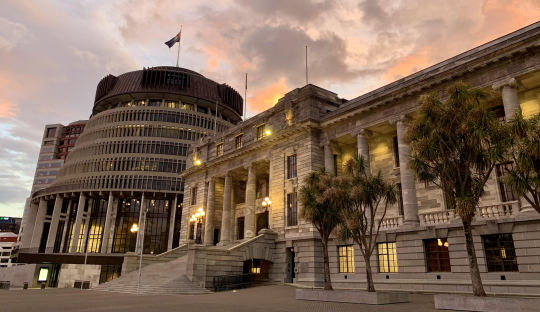
Ever since their 2023 win, the Coalition Government have promised (and recently completed) an intense 100-day plan that focuses on objectives over a wide range of areas, including: education, health, employment, and justice. However, much of these legal changes were established under urgency.
Under urgency refers to an action wherein a Government is able to forego the usual lawmaking norms by either shortening the time for debate on legislation or skip over the submission of public views on proposed bills.
On 8 March, 2024, Marc Daalder (a senior political journalist based in Wellington) reported that the Coalition Government have set a new record for "laws passed under urgency in first 100 days." Only days later, on 12 March, 2024, it was confirmed that the Coalition Government has passed a total of 14 bills in seven weeks under urgency. The average is 10 bills over an entire term.
Here is a list of some of the bills the Coalition Government have passed under urgency (as of December, 2023). Including the repeal of the Fair Pay Agreement—a bill that aimed to protect employees by ensuring that unions and workplace associations could fairly "negotiate terms and conditions for all covered employees in an industry or occupation."
Undeniably, the use of urgency this frequently is not normal.
Lawmaking in Aotearoa NZ is supposed to be a months-long process (sometimes even years) wherein bills are debated and challenged. While certainly not the most time-effective, our lawmaking norms ensure proposals have been considered from numerous perspectives. By eliminating this process, the Coalition Government has introduced a plethora of laws that lack the critical insight of our wider parliament—and have proven that their 100-day plan was completely unachievable within the boundaries of our usual democratic processes.
Te Tiriti o Waitangi
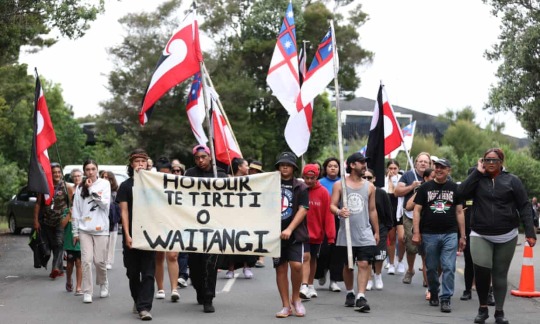
Under the Labour Government (and even, in part, the John Key National Government) race relations between Māori and Pākehā have improved considerably. The gradual integration of Te Reo Māori (the Māori language) and te Ao Māori (the Māori worldview) into education, healthcare, government departments, and public signage have broadened the scope of tolerance, understanding, and empathy between our two peoples. For the first time in centuries, many Māori (myself, included) felt as though we were seeing positive change across all areas of our livelihoods.
However, Coalition leaders David Seymour and Winston Peters have other ideas.
In November, 2023, RNZ reported that Te Tiriti o Waitangi/Treaty of Waitangi will come under review. In particular, how the Treaty's principles are interpreted and integrated into legislation. And despite its many flaws, Te Tiriti is one of the few constitutional documents in the world that promotes partnership and collaboration between an indigenous community and the descendants of European settlers—or as we know it: co-governance. However, this proposed review is looking to eliminate co-governance outright, and override the Treaty with a Treaty Principles Bill. Below are the new principles the Coalition Government (ACT, in particular) would introduce instead:
All citizens of New Zealand have the same political rights and duties
All political authority comes from the people by democratic means
New Zealand is a multi-ethnic liberal democracy where discrimination based on ethnicity is illegal
Although seemingly innocent at a first glance, ACT's proposal is problematic in two major ways.
Firstly, Te Tiriti and its current principles inform how the public service can support Māori citizens through legislation and policy. For example, the Waitangi Tribunal and select committee inquiries discovered that hegemonic health policies were "failing Māori." One of the reasons identified for this was because there was "no sufficient mechanism for Māori to systematically contribute to decisions about services and delivery." As a result, in 2022, the Labour Government established the Te Aka Whai Ora/Māori Health Authority. Te Aka Whai Ora was established with the intentions to improve Māori health outcomes by designing Māori-centric strategies and policies. However, now, we don't even have that.
Secondly, by reinterpreting the Treaty and removing the unique space Māori hold from the principles, the Coalition Government are effectively erasing all the historical grievances between Māori and Pākehā. We can't just pretend Parihaka, the 1975 Māori Land March, the Land Wars, and other similar conflicts didn't happen. Just as Māori have to take responsibility for the rampant violence within our own communities, Pākehā should not be shielded from the shameful violence their ancestors perpetrated against us. Yes, it's uncomfortable. Yes, it will challenge your worldview. But it happened. And whether we like it or not, we can't just forget. Forgetting leads to harmful cycles that are repeated over and over again.
Let us, as a country, learn from the mistakes of our ancestors.
#māori#new zealand#aotearoa#maori#coalition government#national#act#nz first#christopher luxon#david seymour#winston peters#te pati maori#the maori party#nz politics#indigenous peoples#indigenous#indigenous rights#laws#health#politics#education#the treaty of waitangi#te tiriti o waitangi
1 note
·
View note
Text
you can click on this button once daily to help palestine and support other causes in the middle east for free. it takes literally 5 seconds and could help save lives so please take the time to click and share this link.
238K notes
·
View notes
Text
A bilingual book about the Māori creation story has won the highest accolade in children's literature.
Te Wehenga: The Separation of Ranginui and Papatūānuku by Motueka writer Mat Tait (Ngāti Apa ki te rātō) won the Margaret Mahy Book of the Year Award at New Zealand Book Awards for Children and Young Adults held at Wellington's Pipitea Marae.
Te Wehenga simultaneously tells the Māori creation pūrākau, which explains the beginning of the world, in te reo Māori and English.
195 notes
·
View notes
Text
"Today in Auckland, Māori performing haka at a Palestine rally 🇵🇸✊🏾 Aotearoa New Zealand" -Tameem | تميم @TameeOliveFern on twt
a haka in a keffiyeh 🥺 🇵🇸 POWERFUL!!!!
2K notes
·
View notes
Text
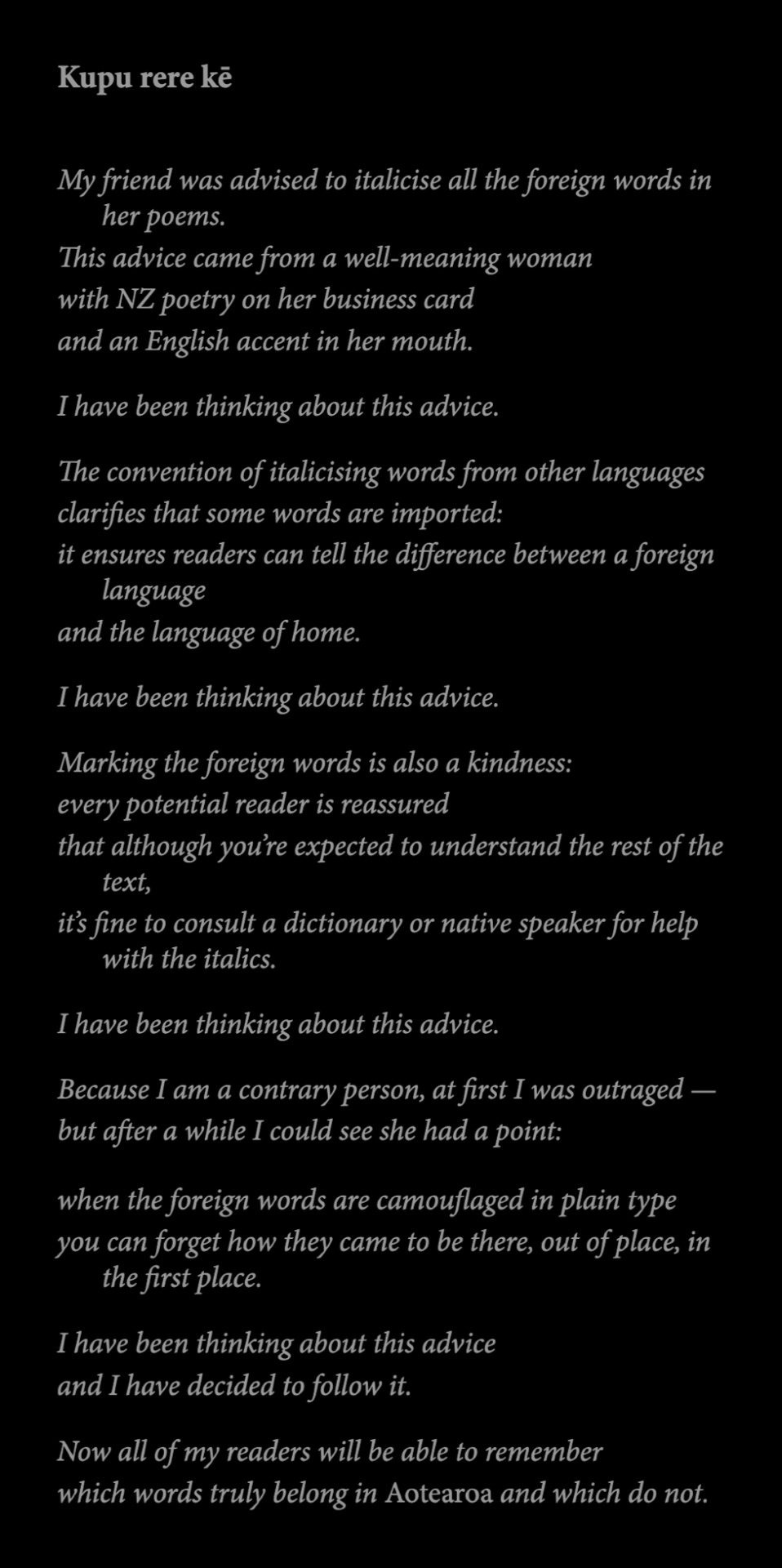
Alice Te Punga Somerville, Always Italicise: How to Write While Colonised - Kupu rere kē
[ID: A poem titled: Kupu rere kē. [in italics] My friend was advised to italicise all the foreign words in her poems. This advice came from a well-meaning woman with NZ poetry on her business card and an English accent in her mouth. I have been thinking about this advice. The convention of italicising words from other languages clarifies that some words are imported: it ensures readers can tell the difference between a foreign language and the language of home. I have been thinking about this advice. Marking the foreign words is also a kindness: every potential reader is reassured that although you’re expected to understand the rest of the text, it’s fine to consult a dictionary or native speaker for help with the italics. I have been thinking about this advice. Because I am a contrary person, at first I was outraged — but after a while I could see she had a point: when the foreign words are camouflaged in plain type you can forget how they came to be there, out of place, in the first place. I have been thinking about this advice and I have decided to follow it. Now all of my readers will be able to remember which words truly belong in -[end italics]- Aotearoa -[italics]- and which do not.
Next image is the futurama meme: to shreds you say…]
(Image ID by @bisexualshakespeare)

#Alice Te Punga Somerville#Always Italicise: How to Write While Colonised#new zealand poem#Always Italicise How to Write While Colonised#poem#poetry#Māori poetry#Māori#colonization#colonisation#Decolonisation#Te reo māori#Decolonization#new zealand#quotes#new zealand poetry
77K notes
·
View notes
Text
About Me
Kia ora e te whānau,
I'm a Māori wahine born on the East Coast with whakapapa that links back to Whakatōhea, Tuhoe, Ngāti Porou, and Ngāti Kahungunu.
I hold a Bachelor of Social Work, and I am currently working in a high school, supporting our rangatahi in their education. I also volunteer part-time for a free service designed to support young wahine who have survived sexual harm.
I am a passionate advocate for voices who fall through the cracks, especially young Māori and our takatāpui/LGBT+ whānau.
I also have a lot of opinions about race politics, feminism, patriarchy, capitalism, and our declining environment—which is why this blog exists. Simply put, I need a dumping ground to express all my thoughts and understanding of the world from my own perspective without draining my whānau and friends from my endless word vomit.
So yeah, that's me.
Nice to meet you.
#maori#māori#social work#youth work#aotearoa#new zealand#women#feminism#the patriarchy#capitalism#lgbtqia#lgbtq community#lgbt#takatapui#advocacy#politics#critical race theory#race#ethnicity
2 notes
·
View notes






